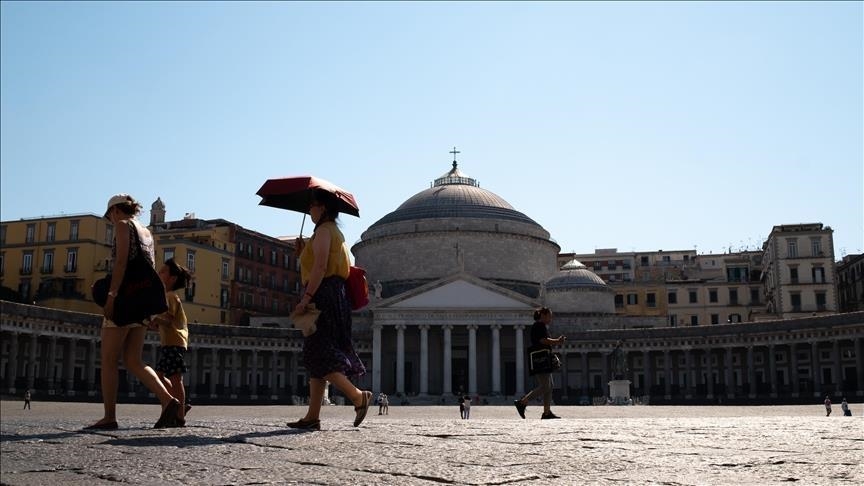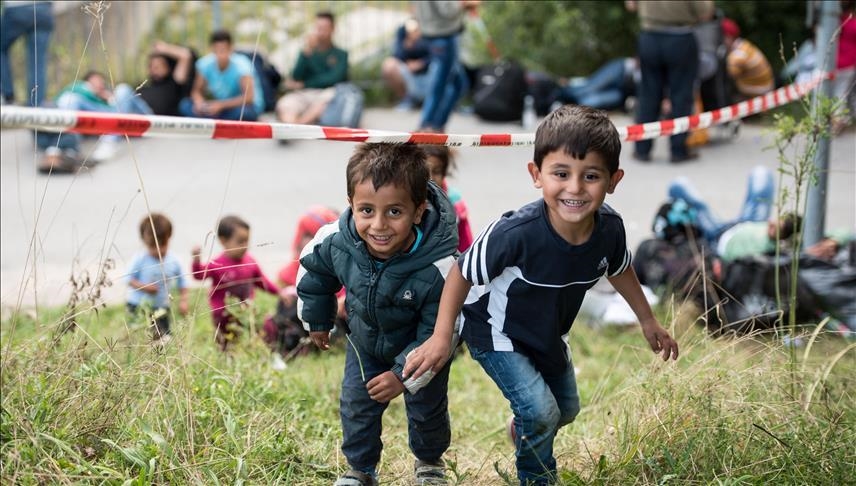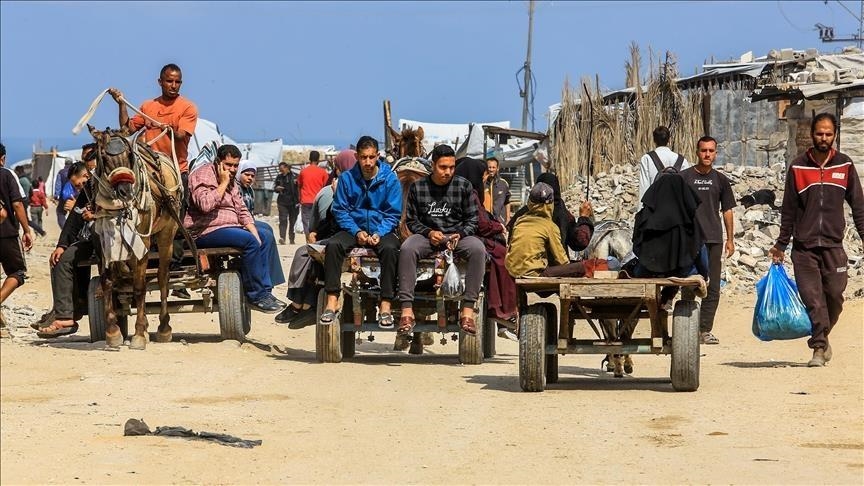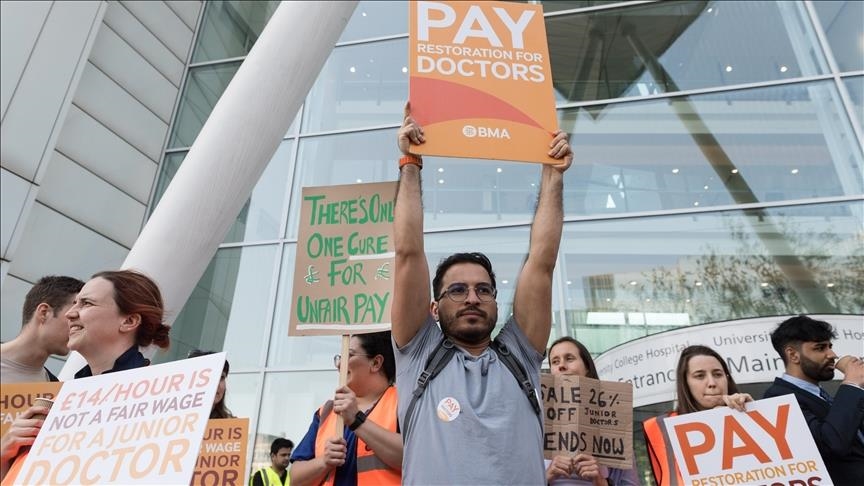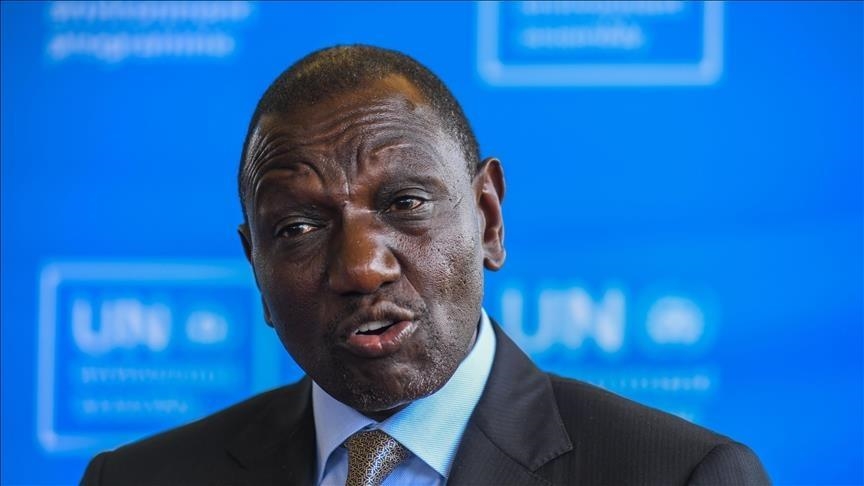Ednews presents the interview with Azerbaijani political scientist Alimusa Ibrahimov based on political agenda topics.
- Recently, serious processes have been carried out in the South Caucasus. The Russian peacekeeping military contingent temporarily stationed in Karabakh began to leave the region. What will the withdrawal of Russian troops change?
- The withdrawal of Russian peacekeeping forces from Azerbaijan was somewhat unexpected. In other words, there was no doubt that these forces would be withdrawn from Azerbaijan and Russia. But everyone was waiting for 2025. The fact that Russia took this step before the deadline surprised some forces both in the region and outside the region. Because the anti-Azerbaijani forces have not yet been able to prepare the necessary rumors to use the withdrawal of the peacekeepers against Azerbaijan. Thus, the forces specializing in criticizing Azerbaijan's every step evaluated the presence of Russian criminals in Karabakh almost as the presence of Russia's base in Azerbaijan. Now the peacekeepers are already leaving the region, and the villains need new stories to use against Azerbaijan. Armenians and the foreign forces behind them are currently engaged in exactly this work. One of such tales, and not at all new, is the rumor that NATO or EU peacekeepers will come to Azerbaijan.
- How will the departure of the peacekeepers from Karabakh affect Azerbaijan-Russia relations?
- Azerbaijan is sure that it has the ability not to let any force into its territory, and that is why Russian peacekeepers are leaving the region. Russian peacekeepers would not leave Karabakh if there was a possibility of NATO and EU peacekeepers coming to Azerbaijan. If this threat existed for 10 years, the Russians would have stayed here for this period. Therefore, I think that it is impossible to bring the forces of any country or organization to Azerbaijan under the name of peacekeepers. Moreover, even though the Russian peacekeepers have left, the Turkish contingent is still in Azerbaijan. It is possible to talk about their strengthening, not their removal.
The departure of the peacekeepers from the territory of Azerbaijan means the opening of a new page in Azerbaijan-Russia relations, and the Presidents of Azerbaijan and Russia already gave the first hint about this at the meeting in Moscow. At the same time, this proved once again how groundless the claims made by the EU and the USA about Azerbaijan are. Azerbaijan once again legitimized its independent status and invited the opposing forces to an equal, mutually beneficial dialogue.
- An agreement was reached between Yerevan and Baku on the return of 4 occupied non-enclave villages of Gazakh to Azerbaijan. How do you rate it?
- The return of our villages, which has been discussed for a long time, should be considered as the next step towards restoring the territorial integrity of Azerbaijan.
- Why as the next step?
- Because we still have work to do and we still have a long way to go before we take the last step. The fact that Armenia vacates our lands at its own will, without resorting to arms, proves that it is possible to achieve results through negotiations. But unfortunately, a lot of blood was shed on both sides until the Armenians were convinced of this tactic. After this event, they will hang their hats and think again, and regret that their lost children were needlessly destroyed.
The return of these villages can be considered as a contribution to the resolution of a serious regional conflict for Azerbaijan. Paths to future goals are opened. Nakhchivan is waiting to connect with Azerbaijan by land. New means are needed for closer relations between the Turkic world. All this step by step will bring us closer to greater victories.
- Will the expected peace agreement between Azerbaijan and Armenia concluded this year?
- The events that have taken place between Azerbaijan and Armenia in recent months, agreements reached, negotiations and discussions are bringing us step by step closer to a peace treaty. But there are still very serious issues to be resolved, such as amending the Constitution of Armenia, Zangezur Corridor, delimitation and demarcation. It seems unlikely that all these issues will be resolved before the end of the year. But hopes that the peace agreement will be signed not this year, but next year, are gratifying and should be considered as a step forward. The main thing is to conduct a dialogue and get closer every day. No one expects that 30 years of enmity will turn into friendship in a year or two. What is expected is the prevention of war and the holding of meetings.
- The situation in the Middle East remains tense. For the first time, Iran attacked Israel with missiles and drones from its territory. Although Israel has declared that it will respond, no serious action has been taken yet. At the same time, Israel continues its military operations in the Gaza Strip. How can we assess what is happening in the Middle East?
- The processes taking place in the Middle East have been in the spotlight for 6 months. Although the Russian-Ukrainian war continues to be relevant. To Israel, the processes taking place around Iran are also serious events that threaten the security of the world. Sometimes you have a hard time deciding which conflict is more dangerous for humanity. The fact that Israel has not responded to Iran, or not responded at the expected level, proves once again that the US and Iran, unlike Israel, are not interested in a major Middle East war. Moreover, Israel has finally decided to listen to the United States. But this does not mean that war between the two regional states is inevitable. Recent events have given both Iran and Israel the opportunity to review their military forces. They reassess the weapons in their arsenal and prepare for new shots. It is difficult to say when the next exchange of fire will occur. This can most likely be kept until after the end of the Gaza operation and after the elections in the United States. In any case, the forces that refrain from throwing the world into flames still prevail.
- Finally, is World War III expected?
- I am among the politicians who think that World War III has already started and it is ongoing right now, and I think that if a significant majority of the world's states are engaged in war on one side or the other, it is a world war. Those who claim that World War III did not start using this factor both to scare the public and to argue that nuclear weapons must be used in World War III. According to their thinking, if a nuclear weapon had not been fired, then World War III would not started. But almost more than half of the countries of the world are at war. What should we call these wars? I do not consider such an approach logical. After these wars are over, the parties who instigated and waged the war will admit that World War II has happened and is over.
Interviewer: Oghuz Ayvaz





